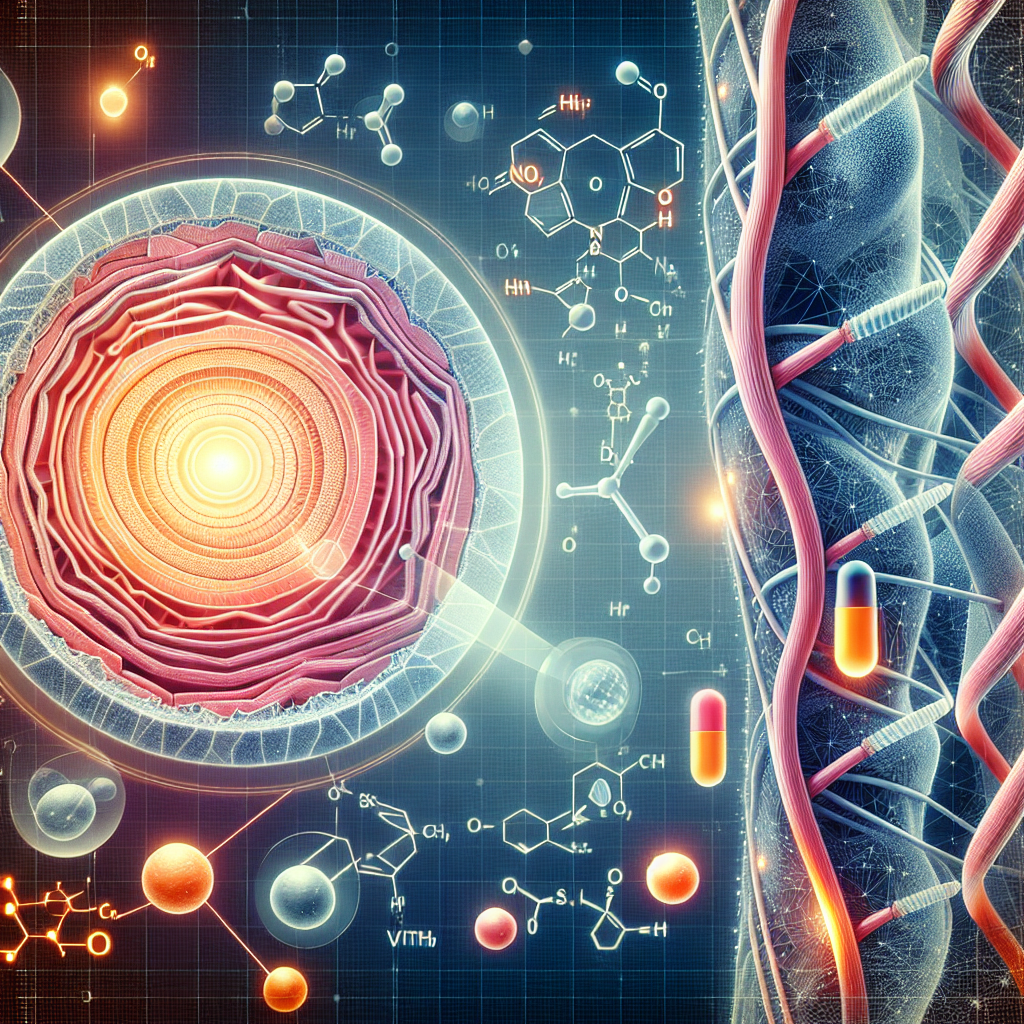The Science Behind Vitamins and Skin Elasticity

Discover the science behind vitamins and skin elasticity! Learn how the right vitamins can enhance your skin’s health and youthfulness. Visit My Vibrant Vitality now to start your journey towards vibrant, elastic skin.
Exploring the Role of Vitamins in Maintaining Skin Elasticity
The science behind vitamins and skin elasticity is a fascinating field of study that has garnered significant attention in recent years. As we age, our skin naturally loses its elasticity, leading to the formation of wrinkles and fine lines. However, research suggests that certain vitamins can play a crucial role in maintaining and even improving skin elasticity, thereby slowing down the aging process.
Vitamins are essential nutrients that our bodies need to function properly. They play a myriad of roles, from boosting the immune system to promoting healthy cell growth. In the context of skin health, vitamins are particularly important as they can help to maintain the skin’s elasticity and firmness.
One of the key vitamins in this regard is vitamin C. This potent antioxidant is known for its ability to stimulate collagen production, a protein that gives the skin its elasticity. Collagen fibers form a network in the skin that provides structure and support. As we age, collagen production decreases, leading to sagging skin and wrinkles. However, by boosting collagen production, vitamin C can help to maintain the skin’s elasticity and reduce the signs of aging.
Vitamin E is another essential nutrient that can contribute to skin elasticity. It is a powerful antioxidant that can protect the skin from damage caused by free radicals, unstable molecules that can break down collagen and elastin, two proteins that are crucial for skin elasticity. By neutralizing these harmful molecules, vitamin E can help to preserve the skin’s elasticity and prevent premature aging.
Vitamin A, also known as retinol, is another key player in skin health. It promotes cell turnover, meaning it helps the skin to shed old, damaged cells and replace them with new, healthy ones. This process is crucial for maintaining the skin’s elasticity, as it ensures that the skin is constantly rejuvenated and refreshed.
In addition to these vitamins, there are also several B vitamins that can contribute to skin elasticity. For instance, niacinamide, a form of vitamin B3, has been shown to improve the skin’s elasticity and texture. It does this by boosting the production of ceramides, lipids that help to strengthen the skin’s barrier and retain moisture, thereby keeping the skin plump and elastic.
While the science behind vitamins and skin elasticity is compelling, it’s important to remember that vitamins alone cannot reverse the aging process. A healthy lifestyle, including a balanced diet, regular exercise, and adequate sleep, is also crucial for maintaining skin health. Moreover, it’s important to protect the skin from external factors that can accelerate aging, such as sun exposure and pollution.
In conclusion, vitamins play a crucial role in maintaining skin elasticity. They can stimulate collagen production, protect the skin from damage, promote cell turnover, and boost the production of skin-strengthening lipids. However, they should be part of a holistic approach to skin health that includes a healthy lifestyle and protection from harmful external factors. As always, it’s best to consult with a healthcare professional before starting any new supplement regimen.
The Science of Skin: How Vitamins Contribute to Skin Elasticity

The science of skin is a fascinating field that has seen significant advancements in recent years. One area that has garnered considerable attention is the role of vitamins in maintaining and enhancing skin elasticity. Skin elasticity refers to the skin’s ability to stretch and then return to its original shape, a vital factor in keeping the skin looking youthful and healthy. As we age, our skin naturally loses some of its elasticity, leading to wrinkles and sagging. However, research suggests that certain vitamins can help slow this process, contributing to the preservation of skin elasticity.
Vitamins are organic compounds that our bodies need in small amounts to function correctly. They play a crucial role in various bodily functions, including skin health. The skin, being the largest organ in the body, is significantly affected by our nutritional status, including our intake of vitamins.
Vitamin A, for instance, is one of the key players in skin health. It promotes cell turnover, meaning it helps the skin to shed old, dead cells and replace them with new ones. This process is vital for maintaining skin elasticity as it keeps the skin fresh and rejuvenated. Retinol, a form of Vitamin A, is a common ingredient in many anti-aging skincare products due to its proven effects on improving skin elasticity.
Vitamin C is another essential vitamin for skin elasticity. It is a potent antioxidant that protects the skin from damage caused by free radicals, unstable molecules that can break down collagen and elastin, the proteins responsible for skin’s firmness and elasticity. Moreover, Vitamin C is crucial for collagen synthesis. Collagen is the most abundant protein in our body, providing structure and elasticity to the skin. By promoting collagen production, Vitamin C helps maintain skin elasticity and reduce the appearance of wrinkles.
Vitamin E, like Vitamin C, is a powerful antioxidant. It helps protect the skin from damage caused by environmental factors such as UV rays and pollution. These factors can accelerate the breakdown of collagen and elastin, leading to a loss of skin elasticity. By neutralizing free radicals, Vitamin E helps preserve these vital proteins, thereby maintaining skin elasticity.
Lastly, Vitamin B3, also known as niacinamide, has been shown to improve skin elasticity. It does this by increasing the production of ceramides, lipids that help maintain the skin’s protective barrier. A strong skin barrier is essential for keeping the skin hydrated, and hydration is key to maintaining skin elasticity.
In conclusion, vitamins play a significant role in maintaining and enhancing skin elasticity. They promote cell turnover, boost collagen production, protect the skin from environmental damage, and strengthen the skin’s protective barrier. Therefore, a diet rich in these vitamins, or the use of skincare products containing them, can help keep your skin looking youthful and healthy. However, it’s important to remember that while vitamins can support skin health, they are just one piece of the puzzle. A holistic approach to skincare, including a balanced diet, regular exercise, adequate sleep, and proper hydration, is the best way to maintain skin elasticity and overall skin health.
Unveiling the Connection Between Vitamin Intake and Skin Elasticity
The science behind vitamins and skin elasticity is a fascinating field of study that has been gaining traction in recent years. As we age, our skin naturally loses its elasticity, leading to the formation of wrinkles and fine lines. However, research suggests that certain vitamins can help to slow down this process, thereby promoting healthier and younger-looking skin.
Vitamin C, for instance, plays a crucial role in the production of collagen, a protein that gives the skin its firmness and elasticity. Collagen production naturally decreases with age, but this process can be slowed down by maintaining a diet rich in Vitamin C. This vitamin is found in abundance in citrus fruits, strawberries, bell peppers, and broccoli. It is also available in supplement form for those who may struggle to get enough from their diet alone.
Vitamin E, on the other hand, is a powerful antioxidant that protects the skin from the damaging effects of free radicals. These unstable molecules can break down collagen and elastin, the two proteins responsible for maintaining the skin’s elasticity and firmness. By neutralizing these harmful molecules, Vitamin E helps to preserve the integrity of these proteins, thereby promoting healthier and more elastic skin. Foods rich in Vitamin E include nuts, seeds, spinach, and broccoli.
Vitamin A is another key player in maintaining skin elasticity. It promotes the production of new skin cells and helps to repair damaged ones, thereby keeping the skin looking fresh and youthful. Retinol, a form of Vitamin A, is often used in anti-aging skincare products due to its proven effectiveness in reducing the appearance of wrinkles and fine lines. Foods rich in Vitamin A include sweet potatoes, carrots, and dark leafy greens.
In addition to these vitamins, research also suggests that Vitamin D may play a role in maintaining skin elasticity. This vitamin is produced by the body in response to sunlight and is also found in foods such as fatty fish, cheese, and egg yolks. While the exact mechanisms are still being studied, it is believed that Vitamin D may help to promote the production of new skin cells, thereby contributing to the maintenance of skin elasticity.
However, it’s important to note that while vitamins can certainly contribute to healthier, more elastic skin, they are not a magic bullet. Other factors, such as genetics, lifestyle choices, and overall health, also play a significant role in determining the elasticity of your skin.
Moreover, while it’s possible to get most of these vitamins from a balanced diet, some people may need to take supplements to meet their daily requirements. It’s always best to consult with a healthcare professional before starting any new supplement regimen.
In conclusion, the science behind vitamins and skin elasticity is a rapidly evolving field that holds great promise for the future of skincare. By understanding the role that vitamins play in maintaining skin elasticity, we can make more informed choices about our diet and skincare routine, thereby promoting healthier and more youthful-looking skin. As research continues to unveil the connection between vitamin intake and skin elasticity, we can look forward to even more exciting discoveries in the years to come.